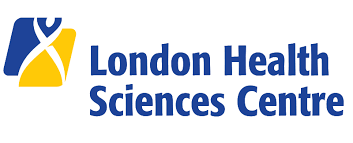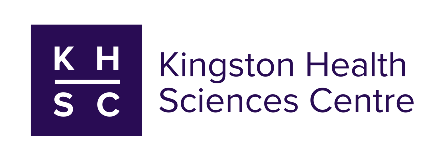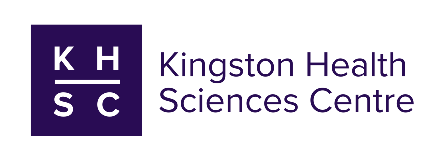New study explores patient preferences and concerns to improve data sharing for precision oncology across Canada

In Canada, health data are not easily shared between jurisdictions. To improve data sharing and enable precision oncology innovation, we need to incorporate patient voices from the start.
Precision oncology relies on the analysis of large amounts of genomic and clinical data to better understand how each patient responds to cancer treatments and whether these treatments are cost-effective to publicly funded health systems. In Canada, these data tend to be siloed between jurisdictions, which means that researchers studying precision oncology and how to implement it can only access a fraction of them. Gaining access to these data can also be slow, sometimes taking years; however, appropriate and timely implementation of precision oncology requires rapid access to high-quality data to generate evidence needed to inform health system decisions.
To accelerate precision oncology research, we need to break down data silos and increase data sharing across jurisdictions. This is an objective of several initiatives both in Canada and worldwide, including the Marathon of Hope Cancer Centres Network (MOHCCN). For this to happen, data sharing must be done in a secure way that respects patient privacy and responds to patient preferences and values.
In a new study, a team led by Dr. Dean Regier, Senior Scientist in Cancer Control at BC Cancer and co-chair of the MOHCCN Health Technology Assessment Working Group, conducted focus groups with individuals with lived and living experience with cancer to understand their values, expectations, and concerns for enhanced data sharing. Their results, which are guiding the development of secure data sharing platforms for precision oncology, are published in the journal JCO Precision Oncology in a research article entitled ’I just assumed this was already being done’: Canadian patient preferences for enhanced data sharing for precision oncology.
A common theme throughout these focus groups was strong patient support for enhanced data sharing capacity and expedited researcher access to precision oncology data. Participants were surprised that data sharing in cancer research and care contexts is not already commonplace.
“Institutions are understandably risk-averse when it comes to sharing patient-level data,” says Dr. Regier. “But the participants in our study remind us that we need to find a balance between sharing and security – and this is consistent with what we heard from patients who want to participate in research.” Dr Regier goes on to highlight that “solutions to privacy-preserving data sharing, including federated learning that allows analysis on siloed data, are crucial to the future of learning healthcare systems.”
The qualitative study found that participants preferred increasing data sharing across jurisdictions and recognized that this could have significant impacts not only on their own treatment opportunities but also on future cancer patients’ quality of care. “[I]t's the realization that I'm helping people and that it actually might benefit me down the road. This is how we make progress with cancer control is having solid research behind us and if sharing data does that, that's all I need for incentives,” said one of the participants.
The focus groups also featured discussions about the value of patient involvement throughout the research trajectory, with participants expressing interest in for example having patients involved in the development of data sharing consent forms and agreements. For example, one of the participants stated that “[h]aving patient voice involvement in a consent process, in a writing up of a consent process, and then saying at the end this consent page or document was done in conjunction with patient voice, for me, would make me feel like there was just another level of care and concern brought from minute one”.
Participants repeatedly underscored the importance of dynamic and nimble consent frameworks that are responsive to individual risk tolerance. They also raised the importance of providing research participants the option to be notified about how their data are used and insights gained from research studies using their data.
“Developing data sharing platforms and consent and governance structures that are guided directly by patient input will help foster trust in bio-innovation and patient willingness to participate in data sharing initiatives,” says lead author Dr. Samantha Pollard. “Of course, the overarching goal of faster and more comprehensive data sharing and access is to generate timely evidence that will improve the health and wellbeing of patients across Canada.”
The authors stress that ongoing efforts to improve cross-jurisdictional data sharing, including the MOHCCN, present an opportunity to seek patient and public input and establish trusted oversight practices that reflect patient priorities and concerns. “Alongside national and international efforts being undertaken to enhance data sharing to support research, our work sets the groundwork for how patients want their data to be stored, managed, used, and by whom,” says Dr. Pollard.
Importantly, this study reinforces the Network’s approach of incorporating patient and caregiver voices at all levels of research activity and provides further guidance on how to do so in a substantial and meaningful way. For example, members of the MOHCCN Patient Working Group participated in the creation of a consent template that serves as a resource for Network members to ensure their existing or new consent forms are consistent with the Network’s data sharing requirements. As Network data sharing mechanisms are established, the MOHCCN will continue to rely on its members – experts in both research and lived experience – to ensure that its work addresses patient and public needs and priorities.
Participant quotes are from Table 2 in the published article.
This study was partially funded by a Marathon of Hope Cancer Centres Network Special Initiatives grant awarded to Dr. Dean Regier.
Learn more
Click here to view the English-language short video prepared by the authors introducing precision oncology and data sharing systems, meant to prepare the focus group attendees for the group discussions. Click here to view the French-language version.
Full citation
Samantha Pollard, PhD, Morgan Ehman, MPH, Anna Hermansen, MSc, Deirdre Weymann, MA, Emanuel Krebs, MA, Cheryl Ho, MD, Howard J. Lim, MD, PhD, Steven Jones, PhD, Yvonne Bombard, PhD, Timothy P. Hanna, MD, PhD, Chiquita Hessels, Holly Longstaff, PhD, Robert Cook-Deegan, PhD, Tania Bubela, PhD, and Dean A. Regier, PhD. “I Just Assumed This Was Already Being Done”: Canadian Patient Preferences for Enhanced Data Sharing for Precision Oncology (2024) JCO Precision Oncology 8.e2400184. doi: 10.1200/PO.24.00184
“Developing data sharing platforms and consent and governance structures that are guided directly by patient input will help foster trust in bio-innovation and patient willingness to participate in data sharing initiatives.”
Related Team Members
-
Dean
Project LeaderMOHCCN Steering CommitteeWorking Group Chair
Regier -
Howard
Project Leader
Lim -
Steven
ResearcherMOHCCN Steering CommitteeWorking Group Chair
Jones -
Yvonne
ResearcherWorking Group ChairWorking Group MemberProject LeaderMOHCCN Steering Committee
Bombard -
Tim
ResearcherWorking Group MemberProject Leader
Hanna -
Emanuel
Working Group Member
Krebs -
Samantha
Working Group Member
Pollard -
Deirdre
Working Group Member
Weymann -
Holly
Working Group Member
Longstaff -
Tania
Researcher
Bubela
Related Project
-
Regional Consortia
BC Cancer Consortium
- British Columbia
The overall vision of the BC Cancer Consortium is to further strengthen our province-wide research capabilities and partnerships, to improve our ability to support innovation in clinical care, and fir...Read more
-
Regional Consortia
Ontario Cancer Consortium
- Ontario
The Ontario Cancer Consortium coalesces the expertise and efforts of clinicians, pathologists, software developers and data and translational scientists to help accelerate precision medicine for cance...Read more
Related News
-

Precision medicine should be first-line treatment for metastatic pancreatic cancer, study finds
A new clinical trial comparing the efficacy of two treatments commonly used on patients with metastatic pancreatic cancer has shed new light on the importance of using genomic sequencing to inform car... -

Atlantic Cancer Consortium leadership and members share updates with the Network
The presentation was part of MOHCCN Seminar Series, which features virtual talks from MOHCCN research partner investigators and trainees, providing a platform for MOHCCN members to share their ongoing... -

Prairie Cancer Consortium leadership and members share updates with the Network
The presentation was part of MOHCCN Seminar Series, which features virtual talks from MOHCCN research partner investigators and trainees, providing a platform for MOHCCN members to share their ongoing... -

Marathon of Hope – Québec consortium leadership and members share updates with the Network
The presentation was part of MOHCCN Seminar Series, which features virtual talks from MOHCCN research partner investigators and trainees, providing a platform for MOHCCN members to share their ongoing...















